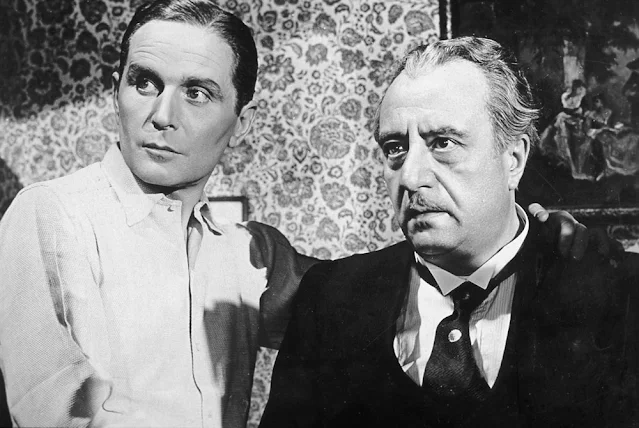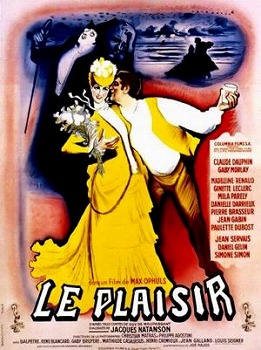A blog formerly known as Bookishness / By Charles Matthews
"Dazzled by so many and such marvelous inventions, the people of Macondo ... became indignant over the living images that the prosperous merchant Bruno Crespi projected in the theater with the lion-head ticket windows, for a character who had died and was buried in one film and for whose misfortune tears had been shed would reappear alive and transformed into an Arab in the next one. The audience, who had paid two cents apiece to share the difficulties of the actors, would not tolerate that outlandish fraud and they broke up the seats. The mayor, at the urging of Bruno Crespi, explained in a proclamation that the cinema was a machine of illusions that did not merit the emotional outbursts of the audience. With that discouraging explanation many ... decided not to return to the movies, considering that they already had too many troubles of their own to weep over the acted-out misfortunes of imaginary beings."--Gabriel García Márquez, One Hundred Years of Solitude
Search This Blog
Showing posts with label Madeleine Renaud. Show all posts
Showing posts with label Madeleine Renaud. Show all posts
Tuesday, June 18, 2024
The Strange Monsieur Victor (Jean Grémillon, 1938)
Cast: Raimu, Pierre Blanchar, Madeleine Renaud, Marcelle Géniat, Andrex, Georges Flamant, Charles Blavette, Marcel Maupi, Charblay, Armand Larcher, Viviane Romance, Roger Peter, Daniel Kahya, Odette Roger, Édouard Delmont. Screenplay: Marcel Achard, Charles Spaak, Albert Valentin. Cinematography: Werner Krien. Music: Roland Manuel.
Monday, August 13, 2018
Remorques (Jean Grémillon, 1941)
 |
| Michèle Morgan and Jean Gabin in Remorques |
Yvonne Laurent: Madeleine Renaud
Catherine: Michèle Morgan
Gabriel Tanguy: Charles Blavette
Marc: Jean Marchat
Renée Tanguy: Nane Germon
Radioman: Jean Dasté
Georges: René Bergeron
Dr. Maulette: Henri Poupon
Marie Poubennec: Anne Laurens
Le Meur: Marcel Pérès
Pierre Poubennec: Marcel Duhamel
Director: Jean Grémillon
Screenplay: Jacques Prévert, André Cayatte
Based on a novel by Roger Vercel
Cinematography: Armand Thirard
Production design: Alexandre Trauner
Film editing: Yvonne Martin
Music: Roland Manuel
Remorques features Jean Gabin at his most effortlessly rugged and romantic, playing André Laurent, the captain of a tugboat that rescues distressed ships and is paid a percentage of the assessed value of their salvaged cargo. He's happily married to the delicate Yvonne, who longs for him to give up the hazardous work and retire to a less stormy port. Still, André is also devoted to his longtime crew and is reluctant to leave them to the mercies of the company's management. One stormy night they go out to rescue a ship whose captain, Marc, is a nasty piece of work. Among other things, he has a very unhappy wife, Catherine, who manages to escape from the ship in a lifeboat that is picked up by André and his crew. When the storm begins to subside, Marc manages to break the towline that is pulling his ship to shore and head to the port of destination under his own steam, thereby depriving André's tug of its share of the rescue money. But André has salvaged something else from the rescue: Catherine, to whom he is attracted at the peril of his marriage. As their relationship heats up, however, Yvonne becomes seriously ill. Director Jean Grémillon makes the most of this blend of action and romance, keeping it from sinking into mush by leavening things with solid supporting performances and providing a piquant, bittersweet outcome. Remorques was made under difficult circumstances as France fell to the Germans, and was not released until after its stars, Gabin and Michèle Morgan, had left the country for Hollywood.
Saturday, September 24, 2016
Le Plaisir (Max Ophuls, 1952)
Pleasure, as the poets never tire of telling us, is inextricable from pain. Le Plaisir is an anthology film dramatizing three stories by Guy de Maupassant that center on what has been called the pleasure-pain perplex. An elderly man nearly dances himself to death in an attempt to recapture his youth. The patrons of a brothel quarrel and even come to blows when they discover that it is closed. An artist marries his mistress to atone for his cruelty to her. Max Ophuls brings all of his elegant technique to the stories, including his characteristic restless camera, which prowls around the wonderful sets by Jean d'Eaubonne, who received a well-deserved Oscar nomination for art direction. It's also, like Ophuls's La Ronde (1950), an all-star production -- if your stars are French. Claude Dauphin plays the doctor who treats the youth-seeking dancer; Madeleine Renaud is the madame of the brothel, Danielle Darrieux is one of her "girls," and Jean Gabin plays the madame's brother, who invites her to bring the girls to the country for his daughter's first communion, hence the temporary closure of the brothel; Daniel Gélin is the artist, Simone Simon his model/mistress, and Jean Servais his friend who also narrates the final section. Of the three segments of the film, the middle one is the longest and I think the most successful, moving from the raucous opening scene in which the men of the small Normandy town discover the brothel closed into a comic train ride to the country, which is as fetchingly pastoral a setting as you could wish. The sequence climaxes with the filles de joie dissolving in tears at the first communion -- the little church in which it takes place is one of d'Eaubonne's most inspired sets -- then returning to town and a joyous welcome. Intriguingly, Ophuls never lets us inside the brothel: We see it only as voyeurs, through the windows. Nothing of this segment is "realistic" in the least, making the melancholy first and last segments more important in establishing the film's theme and tone. The first segment does its part to set up the course of the film as a whole, beginning with a riotous opening as tout Paris flocks to the opening of a dance hall, a pleasure palace, followed by scenes of lively dancing, then the collapse of the elderly patron, who is wearing a frozen and rather creepy mask of youth, and concluding with the bleakness of his normal existence, tended by his aging wife, who is fittingly played by Gaby Morlay, once a silent film gamine. The final segment is the bleakest of all, as the film concludes with the artist pushing his wheelchair-bound wife along the seashore, penance for having provoked her suicide attempt. The film leaves me with something like the feeling I get from the song "Plaisir D'Amour."
Plaisir d'amour ne dure qu'un moment.
Chagrin d'amour dure toute la vie.
The pleasure of love lasts only a moment. The pain of love lasts a lifetime.
Plaisir d'amour ne dure qu'un moment.
Chagrin d'amour dure toute la vie.
The pleasure of love lasts only a moment. The pain of love lasts a lifetime.
Subscribe to:
Comments (Atom)





